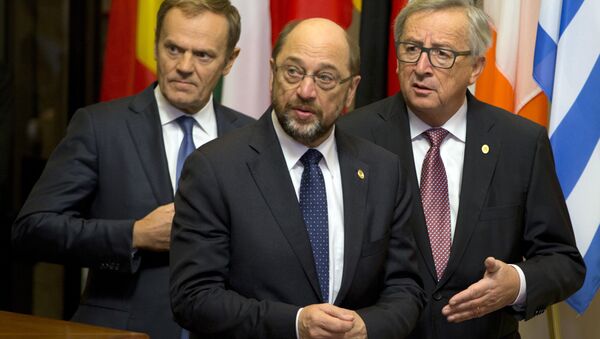Quite apart from the fact that no EU member state has ever invoked Article 50 and nobody knows that the rules are, there are conflicting agendas in Brussels, with some of its most powerful people all claiming to have influence over the proceedings.
#LIVE: @Theresa_May addresses the @HouseofCommons after triggering #Article50 https://t.co/H3xKY5k1Nx #Brexit pic.twitter.com/ugHsR1819G
— Sputnik UK (@SputnikNewsUK) March 29, 2017
At issue is the political question of how to conduct the talks at all. The initial reaction from the EU is that Britain must first "divorce" the EU and then — and only then — begin talks on a new trade agreement. As Article 50 allows for only a two-year negotiating period, that is going to take some doing.
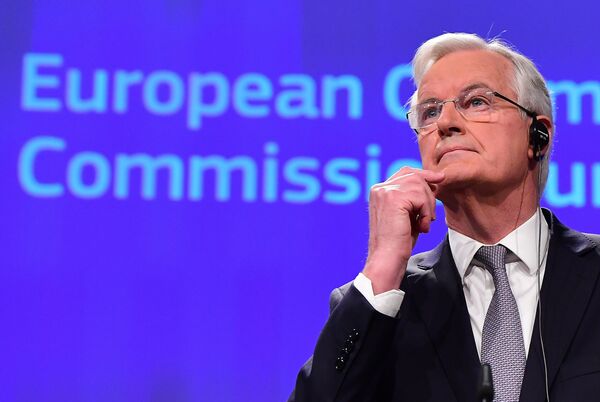
Leading the Brexit talks on behalf of the European Commission will be Michel Barnier, the former French minister for foreign affairs and ex-European Commissioner for Internal Market and Services under Barroso. He is a former Vice President of the European People's Party (EPP) — of which Tusk, EU Commission President Jean-Claude Juncker and EU Parliament President Antonio Tajani are all members.
"The Union, our Union, will also be affected, even if we continue to benefit from the Single Market at 27 and from our free-trade agreements. The no-deal scenario is not our scenario. We want a deal. We want to succeed by reaching a deal. Succeed with the British, not against them," Barnier said.
At 13.20 today, UK #Brexit notification letter (article 50) will be handed to me by Ambassador Tim Barrow: https://t.co/HYCdJfmuLH pic.twitter.com/FBcAx8MSon
— Donald Tusk (@eucopresident) 29 March 2017
Juncker himself — the arch-federalist and former Luxembourg prime minister — will also have a hand in the talks, as Commission President. He has made it clear that Britain must not enjoy the same privileges as EU membership when it negotiates a new relationship with the bloc.
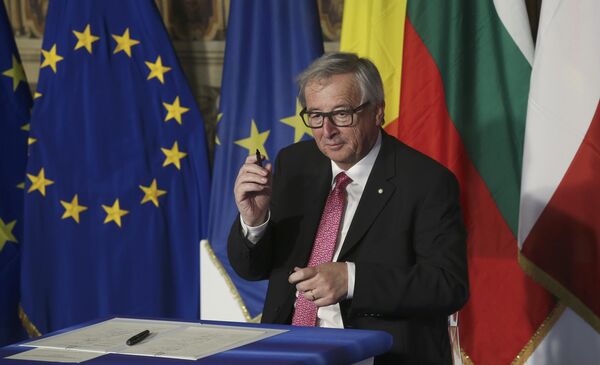
"We want a fair deal for the United Kingdom, but that deal necessarily needs to be inferior to membership. This should not come as a surprise to anyone. Indeed, thinking it can be otherwise would indicate detachment from reality," he told reporters, January 2017.
Meanwhile, leading negotiations on behalf of the EU Parliament is former Belgian Prime Minister Guy Verhofstadt.
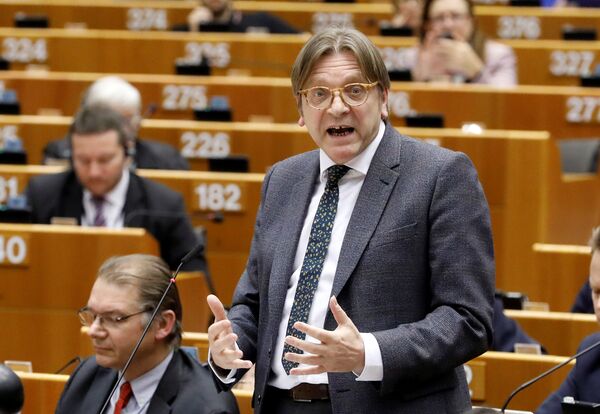
Although friendly towards Britain, he too is an arch-federalist, who stood down as Liberal and Democrat candidate for the parliament presidency, in favor of the EPP's Antonio Tajani, in a deal many saw as giving Verhofstadt carte blanche over Brexit.
Verhofstadt says that although the negotiations with the UK are being led by the Commission, under Barnier, he would encourage parliament to veto any deal if the politicians did not like it.
"We vote no — that is possible. It has happened in a number of other cases that a big international multilateral agreement was voted down by the European Parliament after it was concluded. The fact that in the treaty it is stated we have to say yes or no doesn't mean that automatically we vote yes," he told the BBC Today program, early March.
Meanwhile Tusk himself, as Council president, will have to negotiate on behalf of the remaining 27 members — each of whom has varying views over what deal the UK should be given.
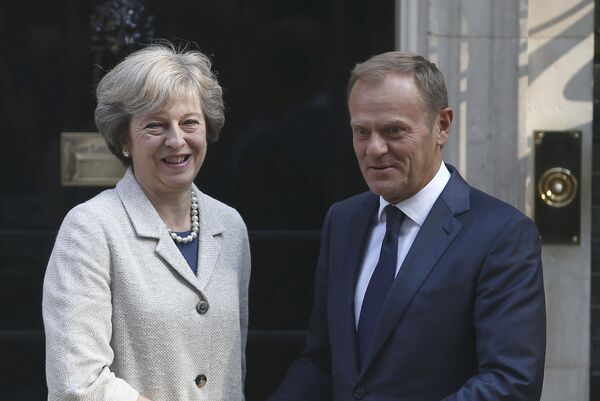
"It is our wish to make this process constructive, and conducted in an orderly manner. I want to be clear that a 'no deal scenario' would be bad for everyone, but above all for the UK, because it would leave a number of issues unresolved. Our goal is to have a smooth divorce and a good framework for the future. And it is good to know that Prime Minister Theresa May shares this view," Tusk told the parliament, early March.
Thus, apart from the UK having to reach agreement with 27 other EU member states, a clutch of key people in Brussels — notably Tusk, Barnier, Juncker and Verhofstadt — will all want their say in the talks.

